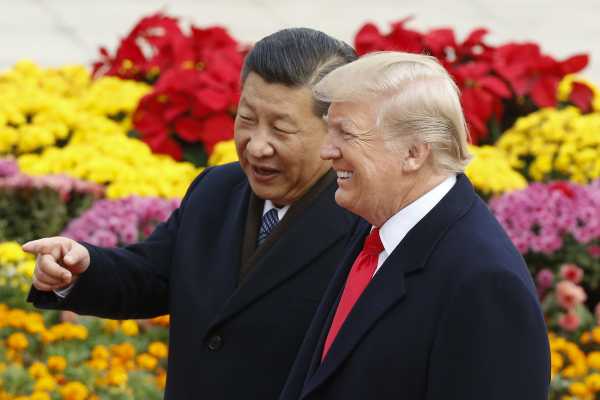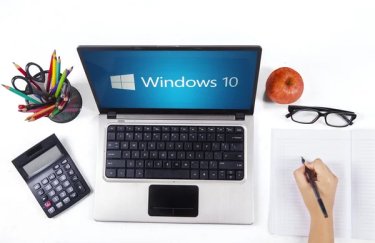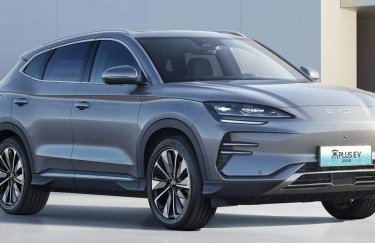
Chinese President Xi Jinping is about to make a risky gamble to try to end the years-long trade spat between his country and the United States: asking President Donald Trump to end US pressure on Chinese communications giant Huawei in return for Beijing finally agreeing to a trade deal (maybe).
In 2018, Trump initiated an all-out trade war on China to compel the country to play by fair trading rules. He’s placed tariffs on billions of dollars in Chinese goods, to which Beijing has responded in kind each time. Both countries have engaged in trade talks for months to end the squabble, but they stalled in May after Trump said China “broke” a deal they’d agreed to with the US.
Concurrently, the US has led a global effort to stop allied nations from using technologies made by Huawei, arguing that the Chinese government — which exerts significant control over domestic companies — could use those technologies to spy on citizens of other countries. The US has already banned Huawei from doing any work with the federal government, a major move meant as an example for other countries to follow.
There’s also a financial motivation behind the US push to stop countries from using Huawei products: US and Chinese firms are both vying to lead the world in providing 5G technology, which offers lightning-fast internet connectivity that will allow billions more devices — from cellphones to self-driving cars to even robots performing surgery — to operate better.
President Xi has not taken kindly to the dual pressure campaigns by the US. So when he meets Trump during the G20 summit in Japan this weekend to discuss trade, among other matters, he’ll aim to stop both of them in one go.
The Wall Street Journal reports that the Chinese leader plans to ask Trump to lift both the Huawei ban and all punitive tariffs on the country as preconditions before signing a possible trade deal.
That’s a huge ask, as Xi is basically saying Trump must give up his entire strategy to get what he ultimately wants. There’s also no guarantee that Xi’s regime will abide by whatever agreement the US and China arrive at, by which point Trump’s leverage will have subsided.
But China’s premier is surely aware that Trump has dangled Huawei as a bargaining chip before. “It’s possible that Huawei would be included in a trade deal,” Trump told reporters in May. “If we made a deal, I can imagine Huawei being included in some form or some part of a trade deal.”
The surprising thing, then, may be that Xi didn’t request this sooner.
“Trump has said explicitly on several occasions that Huawei could be part of a trade deal, so why wouldn’t Xi take him up on it?” Bonnie Glaser, a China expert at the Center for Strategic and International Studies think tank in Washington, told me. “The question is what will the Chinese agree to do in return?”
That part is unclear. But whatever it is, it will have to be enough to satisfy Trump and his team of trade hawks. If Xi’s offer doesn’t do that, the US president may impose tariffs on the remaining $300 billion worth of Chinese goods he has yet to penalize — which could potentially jeopardize the global economy’s health.
As of now, it doesn’t appear that Trump will accept Xi’s proposal.
On its own, the decision facing Trump now is a tough one. But it’s even tougher now, considering that everything he does will be seen through the lens of the 2020 presidential election — and getting China to heel was one of his major campaign promises.
China is quickly becoming a major 2020 campaign issue for Trump
Trump has already picked a fight with top Democratic presidential contender Joe Biden over his China stance. Last month, the former vice president said that China is “not competition for us,” leading Trump to respond in June that “China is a major competitor.”
That little spat highlights just how important Trump’s trade war is not only for his presidency but also for his reelection campaign. Trump promised to end what he called China’s “rape” of America. Failing to do that won’t help Trump with his base — especially if it coincides with a decision to allow Beijing to sell potentially compromised technology to US consumers.
“Huawei is a dirty bomb inside the industrial democracies,” Steve Bannon, Trump’s former top strategist and self-proclaimed China hawk, told me. “Left unchecked by America, Huawei will dominate 5G in a world where data is the new plutonium.”
National security professionals — and Trump’s 2020 presidential rivals — would also surely pounce if Trump gives Xi what he wants. “If the president folds on Huawei, Democrats will eat him alive,” said Eric Sayers, a China expert at the Center for a New American Security think tank in Washington.
Trump, however, may calculate that now is the time to strike some kind of deal, even if it’s imperfect. After all, he needs a big win to tout on the campaign trail over the next year, and it’d be hard to score a bigger prize than saying he “solved” China even if he didn’t.
“If Trump is gambling that he can get a ceasefire, leave the current tariffs in place to be ‘tough on China’ while giving Xi what he wants on the less-in-the-public-eye technology sanctions against Huawei, he might go for it,” Jacob Kirkegaard, a global markets expert at the Peterson Institute for International Economics in Washington, told me.
No one I spoke to believes Trump and Xi will hammer out the final accord at the G20. More likely, they say, the two leaders will ask their trade negotiators to resume talks in earnest. The question, though, will be if Trump instructs his team to grant Xi’s wishes along the way.
“It will be up to the president, if he wants a deal so badly this summer that he is willing to ignore other national security aspects of the relationship, to get one,” Sayers said.
Sourse: vox.com






